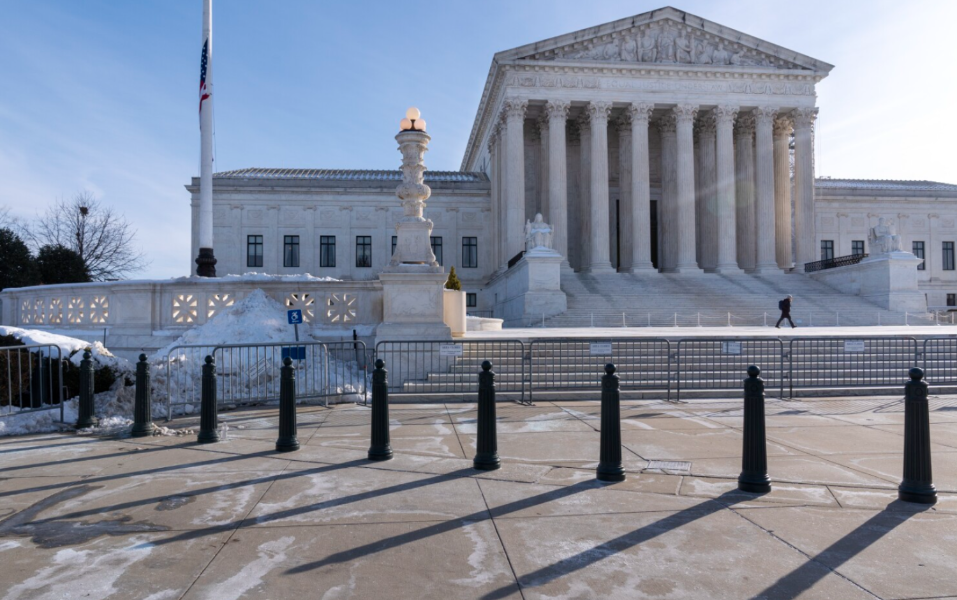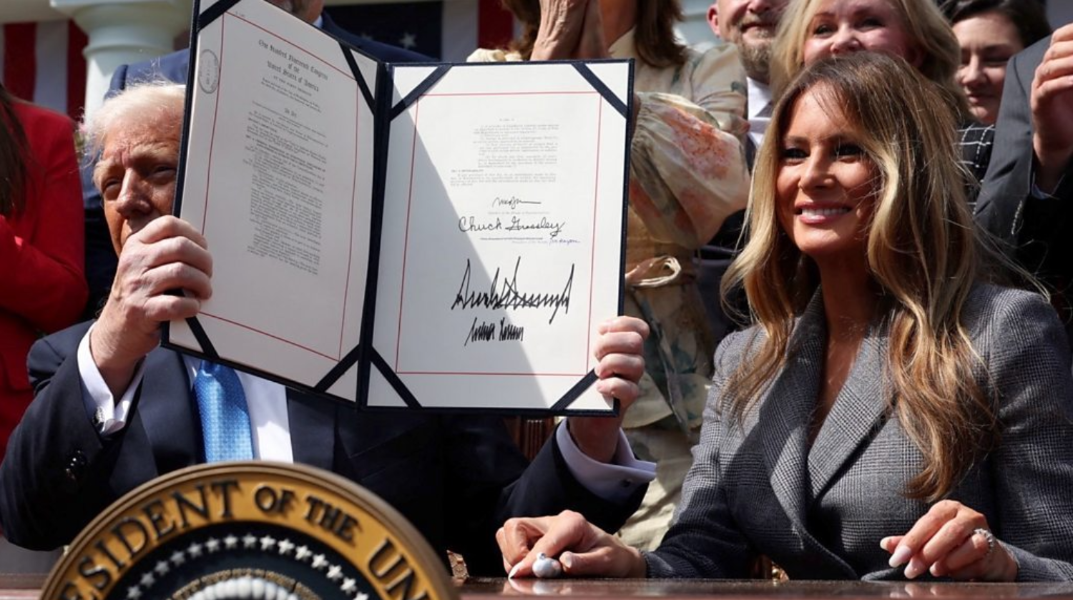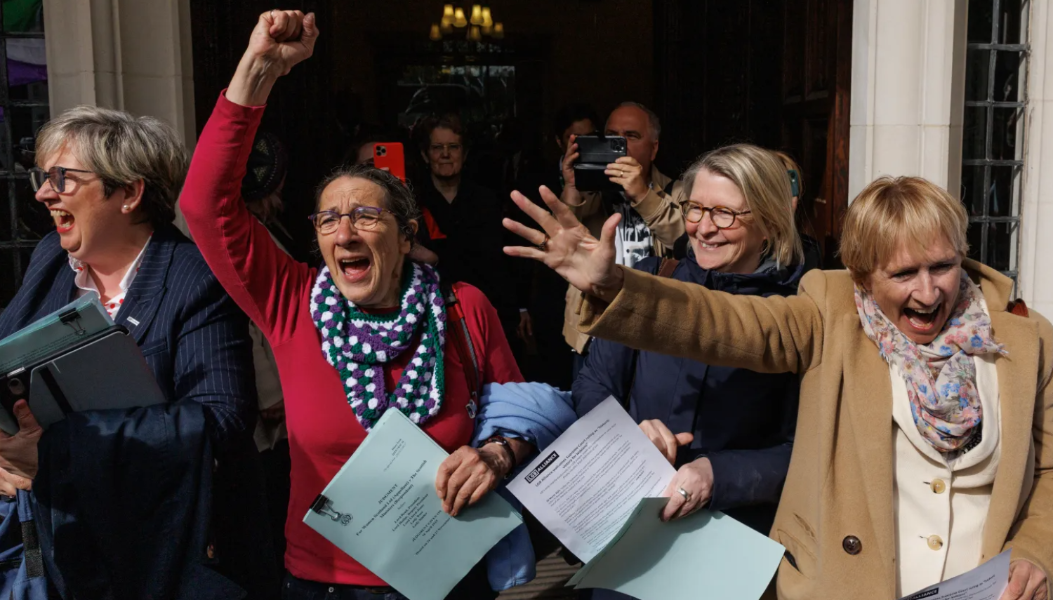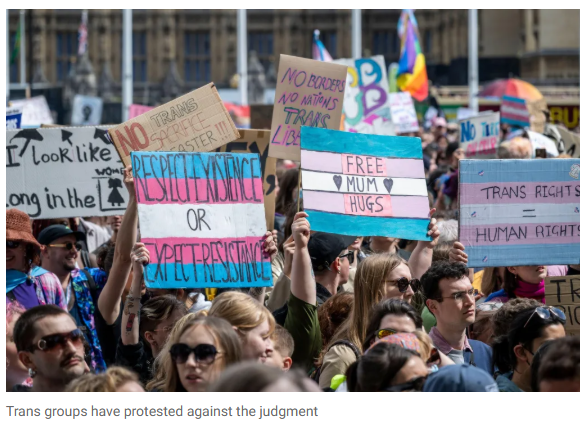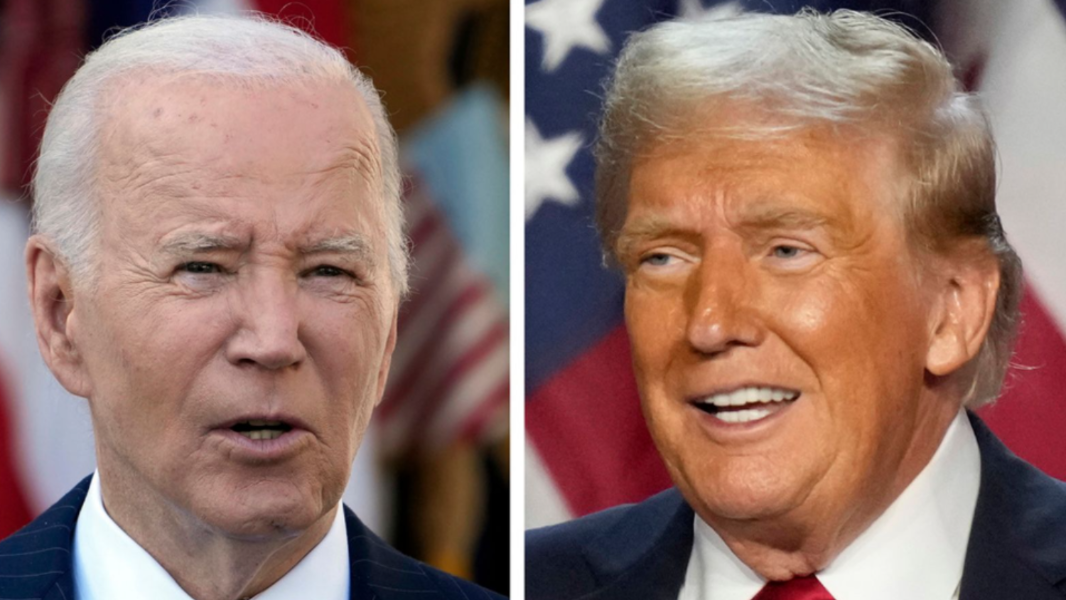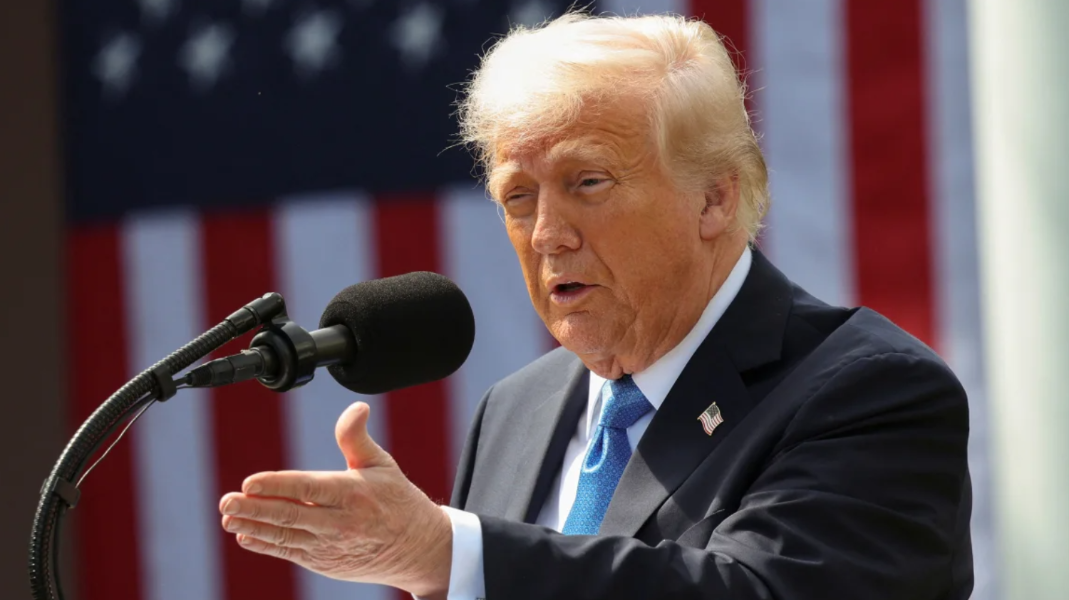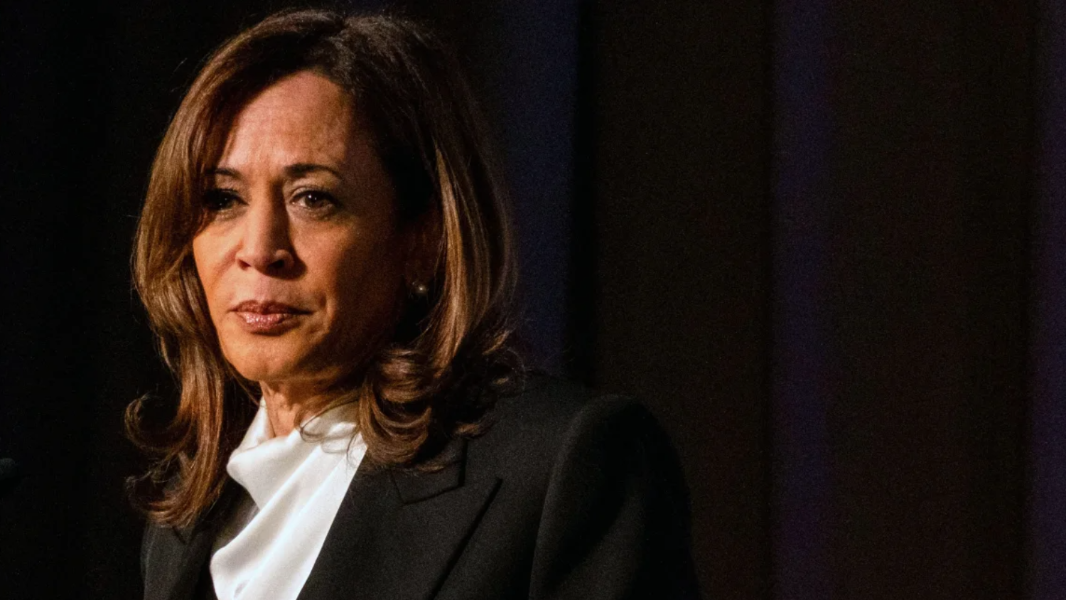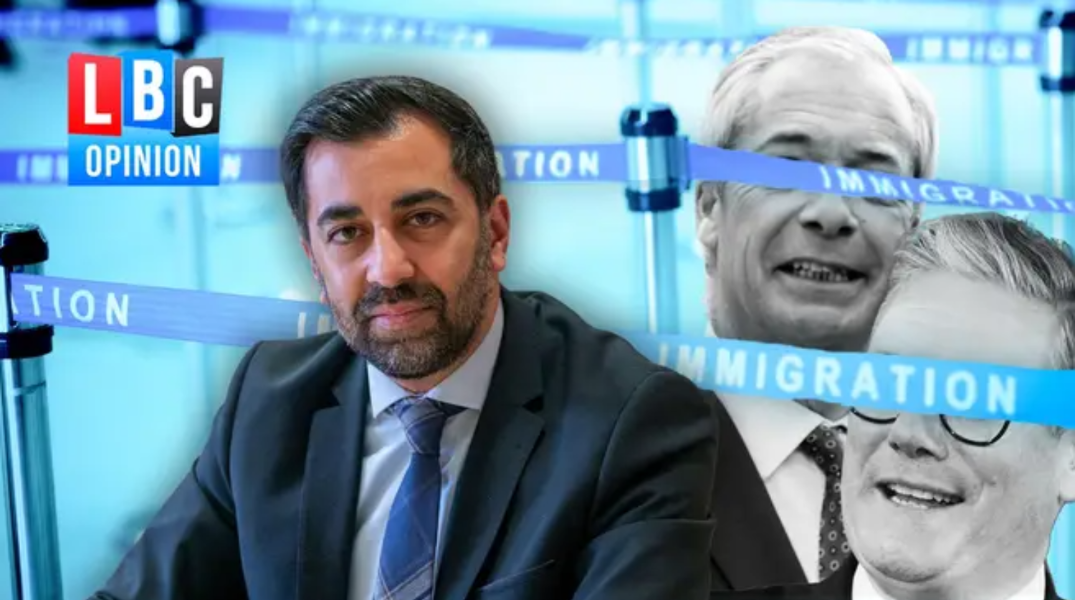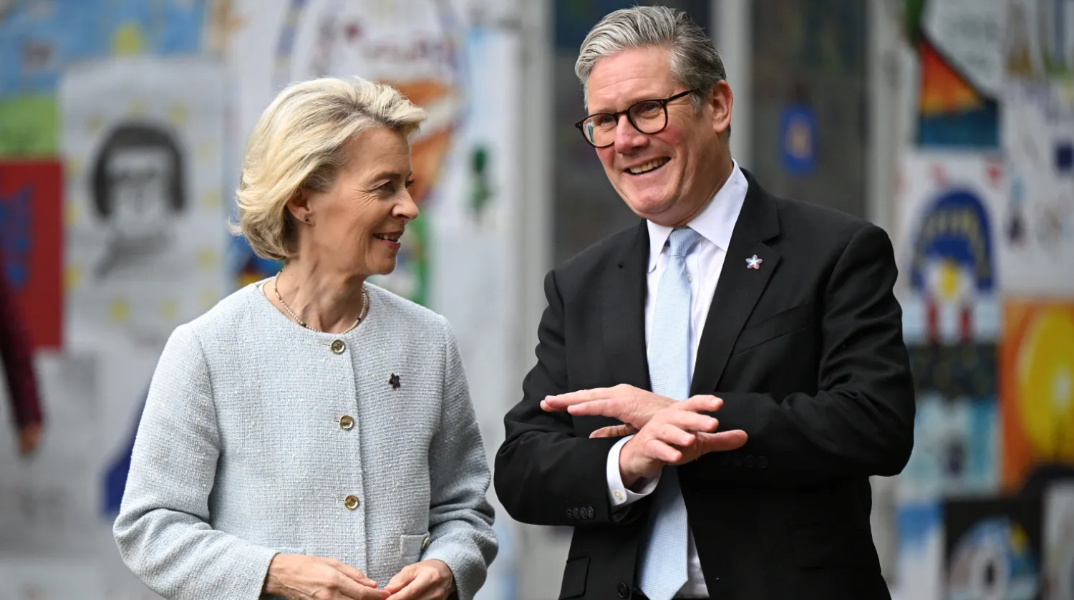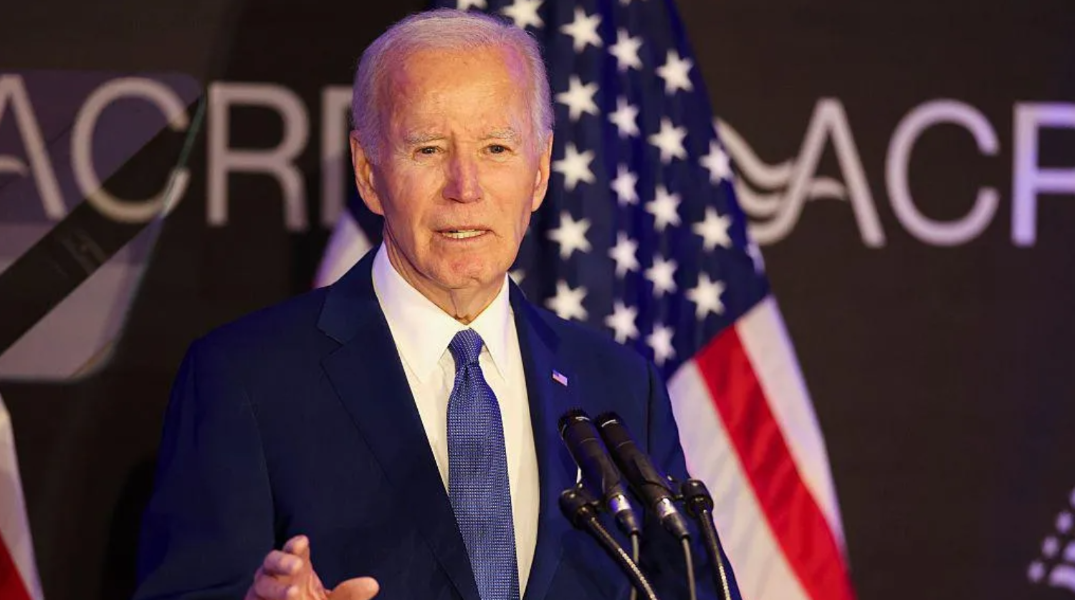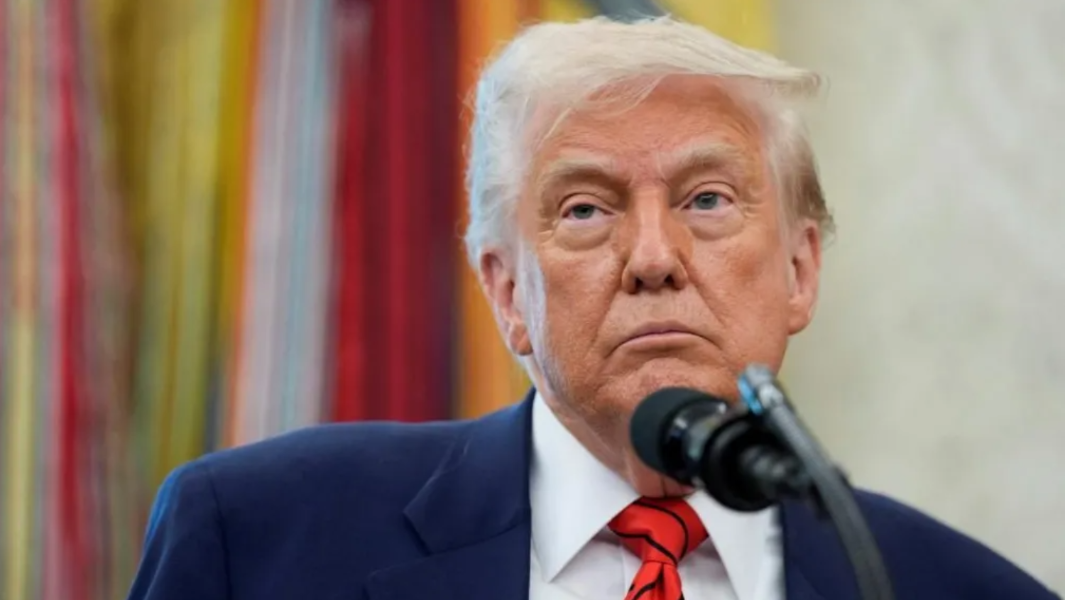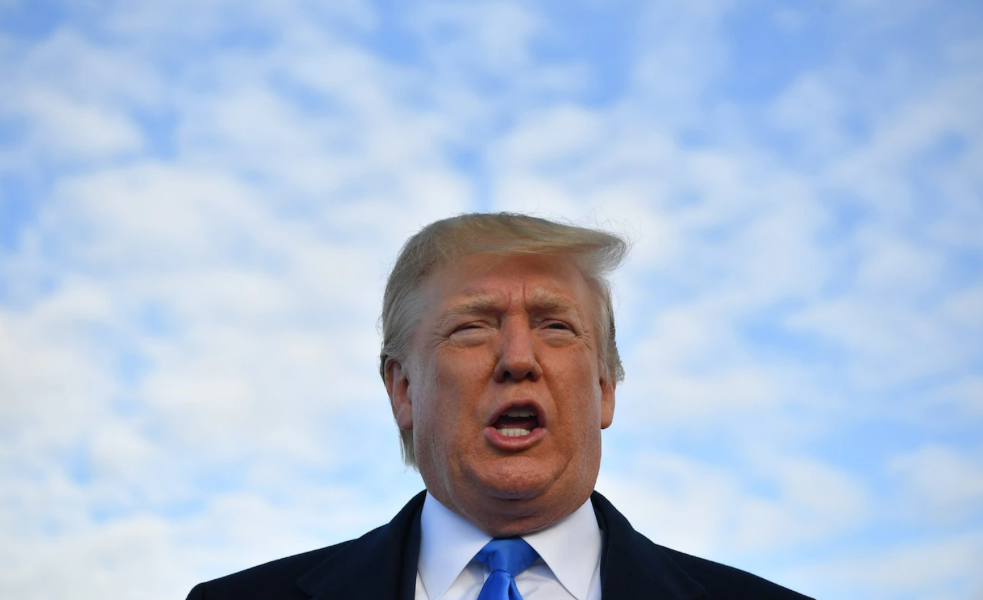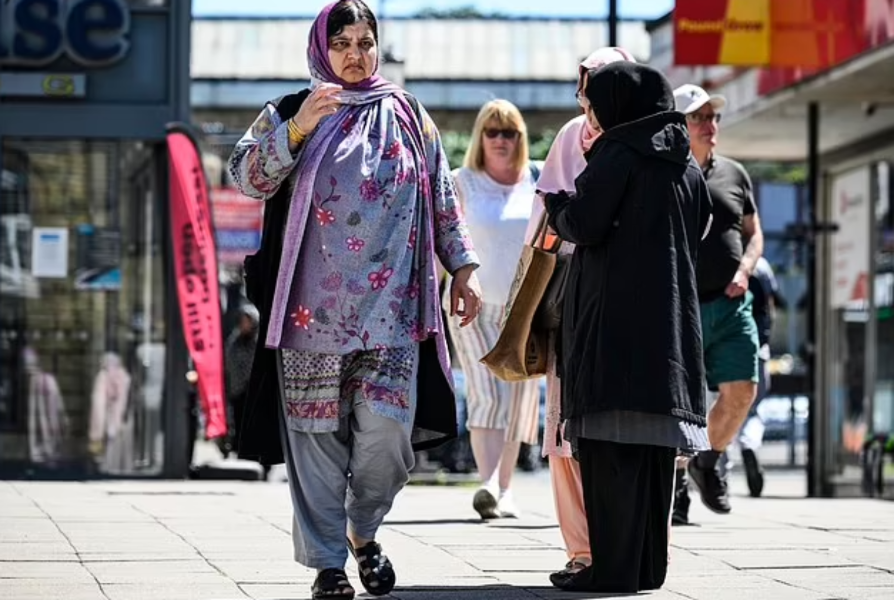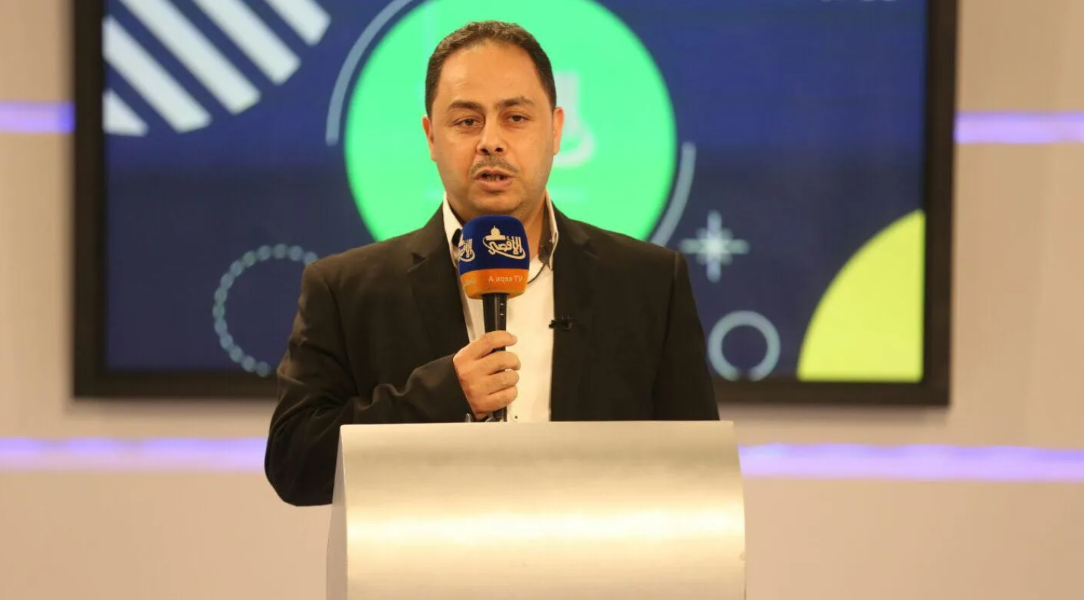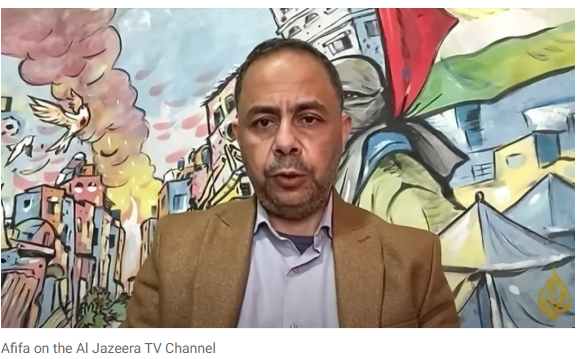-
Posts
10,806 -
Joined
-
Last visited
Content Type
Events
Forums
Downloads
Quizzes
Gallery
Blogs
Everything posted by Social Media
-
China’s New ‘Drone Mothership’ Set to Redefine Aerial Warfare China’s military ambitions in unmanned aerial combat are about to take a significant leap forward with the imminent test flight of a groundbreaking drone carrier known as Jiu Tian or “Nine Heavens.” According to Chinese state broadcaster CCTV, the aircraft is expected to launch within days and marks a dramatic advancement in drone warfare capabilities for the People’s Liberation Army (PLA) Air Force. When fully operational, Jiu Tian will be capable of releasing massive swarms—up to 100 smaller drones simultaneously—designed to function collectively in a coordinated assault, overwhelming enemy air defense systems through sheer numbers and tactical synchronization. The concept mirrors a strategic shift seen increasingly in modern warfare: the use of AI-driven drone networks to saturate and disrupt conventional military defenses. With a maximum range of 7,000 kilometers and the ability to carry up to six tonnes of payload including munitions and smaller UAVs, Jiu Tian is not just an aerial combat machine but a multipurpose asset. It’s expected to play roles in border defense, emergency rescue operations, and even high-security transport missions. These expanded functions make it a flexible platform suited for both peacetime and combat operations. The drone carrier was developed by the state-owned Aviation Industry Corporation of China (AVIC) and constructed by Xi’an Chida Aircraft Parts Manufacturing, companies at the forefront of China’s push to become a global leader in drone and aerospace technology. The Jiu Tian project underscores China’s increasingly sophisticated and strategic use of unmanned systems in military operations. It also places the country in direct competition with leading U.S. drone technologies such as the RQ-4 Global Hawk and the MQ-9 Reaper. While the American drones have long dominated the field in intelligence gathering and precision strikes, China’s new mothership design indicates a shift toward swarm-based warfare and airborne drone deployment—tactics that could redefine the balance in airpower capabilities. The development of Jiu Tian is also part of a broader modernization drive within the PLA, where technological advancements in AI, robotics, and unmanned systems are being integrated into doctrine and strategy. As drone warfare becomes more central to military planning globally, platforms like Jiu Tian may not only enhance China’s aerial reach but also signal a new era of multipurpose UAV capabilities with far-reaching implications. While specific details on the internal systems and AI algorithms controlling the swarm behavior have not been disclosed, analysts suggest that the success of Jiu Tian’s upcoming test flight will be closely monitored by militaries around the world. Its ability to launch and coordinate a drone swarm in real-time could offer China a formidable tool in electronic warfare, reconnaissance, and potentially first-strike scenarios. As China prepares for this key test flight, the world will be watching not just the technical success of Jiu Tian, but what it represents: the rise of a new breed of drone warfare that emphasizes scale, coordination, and unmanned dominance in future conflicts. Adapted by ASEAN Now from Euro News 2025-05-21
-
Supreme Court Clears Way for Trump Administration to End Protections for Venezuelan Migrants In a significant development for U.S. immigration policy, the Supreme Court has ruled in favor of the Trump administration, allowing it to rescind temporary legal protections previously granted to thousands of Venezuelan migrants living in the United States. The decision, handed down Monday, marks a notable victory for the administration’s broader efforts to tighten immigration enforcement and expand deportations. The court’s order effectively overrules a previous decision from a lower court that had halted the Department of Homeland Security from moving forward with the removal of these protections. That earlier ruling had temporarily blocked the government from carrying out its plan while legal challenges were still ongoing. However, the Supreme Court’s action now clears the path for the administration to proceed. This legal protection, known as Temporary Protected Status (TPS), is a form of relief offered to individuals from countries experiencing armed conflict, natural disasters, or other extraordinary conditions that make returning home unsafe. Many Venezuelan migrants currently living in the U.S. have relied on this status to remain in the country lawfully and to avoid deportation to a nation facing deep economic and political turmoil. Although the Supreme Court did not issue a detailed opinion explaining its decision, the move aligns with the Trump administration’s long-standing position that TPS was never meant to offer permanent residence in the U.S. and that conditions in certain countries, including Venezuela, have improved enough to warrant the return of their citizens. Immigration advocates, however, strongly dispute that characterization and argue that returning Venezuelans to their home country would place them in grave danger. “The administration’s actions are not only legally questionable but morally indefensible,” said an immigration attorney involved in the case. “To claim that Venezuela is now safe for return flies in the face of overwhelming evidence to the contrary.” While the legal battle is not entirely over—lower courts will continue to weigh in on the broader merits of the case—the Supreme Court’s decision means that, in the meantime, thousands of Venezuelan migrants could now face deportation. It also signals the court’s willingness to side with the executive branch on immigration issues, a trend seen throughout the Trump presidency. The Trump administration has made no secret of its desire to significantly scale back TPS protections. Officials have repeatedly stated that the program has been extended far beyond its original intent and that many recipients should no longer be allowed to stay in the U.S. permanently. Supporters of the move argue that ending TPS is a necessary step toward restoring the rule of law in immigration policy. Adapted by ASEAN Now from Wall Street Journal 2025-05-21
-
Melania Trump Hails New Law Targeting Revenge Porn and Deepfakes as Victory for Children’s Safety First Lady Melania Trump has praised the enactment of a new federal law that criminalizes the non-consensual sharing of intimate images—including AI-generated deepfake pornography—as a critical step toward protecting young people from online exploitation. The legislation, known as the Take It Down Act, was signed into law by President Donald Trump and marks one of the most strongly supported bipartisan efforts of his second term. The Take It Down Act makes it a federal crime to post or distribute intimate images or videos—whether authentic or digitally manipulated—without the subject’s consent. The law also compels technology companies to remove such content within 48 hours of notification. Offenders found guilty of intentionally distributing explicit images without consent could face up to three years in prison. “Anyone who intentionally distributes explicit images without the subject's consent will face up to three years in prison,” President Trump stated during the signing ceremony. The bill passed through Congress with overwhelming support. It cleared the House with a 409-2 vote at the end of April, following a unanimous Senate vote in February. White House Press Secretary Karoline Leavitt credited Melania Trump as “instrumental” in helping to shepherd the legislation through Congress. The first lady, who typically maintains a low profile, took the lead in advocating for the bill and used her first solo public appearance of the year to encourage lawmakers to pass it. “It’s heartbreaking to witness young teens, especially girls, grappling with the overwhelming challenges posed by malicious online content, like deepfakes,” Melania Trump said during a roundtable discussion on March 3, where she addressed members of Congress and online safety advocates. Her call for legislative action was echoed by celebrities such as Paris Hilton, who has spoken out about her own experiences with non-consensual image sharing and called the new law “a crucial step toward ending non-consensual image sharing online.” Major tech firms including Meta, TikTok, and Google have backed the legislation, signaling widespread industry support for the government’s efforts to curb the spread of explicit content online. However, the bill has not escaped criticism. Digital rights organizations warn that the broad scope of the law could lead to unintended consequences for free speech and online privacy. The Electronic Frontier Foundation, a prominent digital rights advocacy group, said in a statement, “While protecting victims of these heinous privacy invasions is a legitimate goal, good intentions alone are not enough to make good policy.” The organization added that the Act, as currently written, “mandates a notice-and-takedown system that threatens free expression, user privacy, and due process, without addressing the problem it claims to solve.” The Internet Society also voiced concern, arguing that the law “poses unacceptable risks to users' fundamental privacy rights and cybersecurity by undermining encryption.” Critics caution that while the intent behind the law is commendable, its implementation could potentially suppress legal content and infringe upon individual rights. Despite these concerns, the passage of the Take It Down Act represents a rare moment of bipartisan unity in Washington and underscores the growing political momentum to regulate harmful digital content. For Melania Trump, who has long championed the protection of children online, it is a defining moment in her public advocacy. Adapted by ASEAN Now from BBC 2025-05-21
-
Labour Moves to Align With Court Ruling, Excludes Trans Women From All-Female Shortlists The Labour Party is set to exclude transgender women from all-women shortlists in a move that aligns with a recent Supreme Court ruling clarifying the legal definition of "woman" under the Equality Act. The party’s National Executive Committee (NEC) will vote on measures to revise its positive action policies so that they comply with the judgment, ending the practice of relying on self-identification in determining eligibility for women-only spaces and roles. This shift comes as the Equality and Human Rights Commission (EHRC) prepares to launch a consultation on revised guidance to service providers. The updated guidance is intended to assist organisations in implementing the Supreme Court's April ruling, which stated that sex-based provisions in the Equality Act refer to biological sex. Although the EHRC's forthcoming recommendations are not expected to deviate substantially from an interim update issued earlier this year, they are said to include around 40 pages of detail, with ten dedicated to guidance on maintaining single-sex spaces. The interim guidance had already sparked backlash, with critics arguing it effectively barred transgender women from accessing women’s facilities such as changing rooms and lavatories. More than 1,000 individuals signed an open letter to the EHRC, claiming the guidance ignored the need to protect trans, non-binary, and intersex individuals from discrimination. The Good Law Project has also committed to challenging the guidance in court, stating that it is “either wrong in law or, if right, breaches the UK’s obligations under the Human Rights Act 1998.” Despite these objections, sources have confirmed that the EHRC will continue recommending biological sex as the determining factor for services claiming to be single-sex. The consultation period, which was initially planned for two weeks, has been extended to six following pressure from advocacy groups. After the consultation concludes, the guidance will be reviewed by Bridget Phillipson, the minister for women and equalities, before being submitted to Parliament. A confidential report to the Labour NEC acknowledged the legal implications of the Supreme Court ruling, stating that it is “not legally defensible to continue to apply [positive action] measures on a basis other than relating [to] individuals who were biological women at birth only.” The report noted that this affects not only shortlists but also who may attend Labour’s women’s conference or stand as a women’s officer, adding that continuing to operate on a self-identification basis could “expose the party to significant risk of direct and indirect discrimination claims succeeding.” The document further concluded that “it is unlawful to operate [all-women shortlist] arrangements that include transwomen,” warning that a man excluded from such a shortlist could mount a successful sex discrimination claim. Due to the heightened attention on the ruling, the NEC was also advised that this year’s women’s conference could face security concerns and protests. The report suggested postponement to avoid legal and political risks, including overshadowing Labour’s broader national conference. NEC members are now tasked with choosing between two options: defining all positive action based on biological sex at birth or suspending such measures altogether during a review. The latter, however, was described as “disproportionate.” A Labour spokesperson commented: “The Labour Party has been clear that we respect the Supreme Court judgment — and like other organisations, we will comply with statutory guidance once published. Ministers will consider the EHRC code of practice when a draft is submitted.” Maya Forstater, chief executive of the charity Sex Matters, praised Labour’s move, calling it “good news that the Labour Party NEC is being urged to accept that women and men are, and always have been, two biological sexes.” However, she criticized the recommendation to postpone the women’s conference, saying: “The suggestion that the right thing to do is to postpone the women’s conference rather than simply running the event as it was always intended to be — for women — is simply outrageous.” Forstater added, “There would be no good reason to postpone the planned conference just because it is for women, as defined in the Equality Act. This is direct discrimination against women in the Labour Party.” Adapted by ASEAN Now from The Times 2025-05-21
-
- 2
-

-

-
Andrew and Tristan Tate Expected to Be Extradited to UK After Romanian Trial Andrew Tate and his brother Tristan are reportedly set to be extradited to the United Kingdom following the conclusion of their ongoing criminal trial in Romania, where they are facing serious charges including rape, human trafficking, and the formation of an organised criminal group. This development was reportedly confirmed by UK Security Minister Dan Jarvis, marking the first public acknowledgement by a British government official of the possibility that the Tates will be returned to the UK to face justice. Currently, the brothers are involved in court proceedings in Bucharest, where Romanian authorities have kept them under investigation for an array of alleged offences involving the exploitation of women. Despite ongoing legal action in Romania, the UK has not dropped its own interest in the case. It has emerged that Bedfordshire Police previously secured a warrant for the arrest of the brothers in relation to allegations of rape and human trafficking in Britain. The Crown Prosecution Service, however, declined to bring charges against the Tates back in 2019. Despite that decision, four women are now suing the brothers in civil court, further intensifying legal scrutiny on them within the UK. Security Minister Jarvis, as reported by The Telegraph, stated that Andrew, 38, and Tristan, 36, would be “surrendered” to British authorities after the conclusion of their Romanian trial. “Surrendered” is a legal term used in international extradition cases and signals an intent by Romanian authorities to hand the men over once their obligations under Romanian law have been fulfilled. The issue of whether the Tates would ever be returned to the UK has been a matter of speculation until now. Romanian judges had earlier rejected the idea of deporting the brothers before they stood trial in Romania. The latest revelations from Jarvis indicate that British authorities are coordinating closely with their Romanian counterparts to ensure the brothers are held accountable under UK law as well. The case also arrives at a time when Andrew Tate’s controversial public persona continues to attract criticism in the UK, particularly for his influence on young men and boys. Critics argue that his online content promotes toxic masculinity and fuels misogyny in schools and online spaces. The growing concern over the cultural impact of social media figures like Tate has become a broader political and social issue in the UK, leading to discussions around regulation and digital responsibility. Though no official timeline has been provided for their extradition, the statement by Jarvis suggests a firm intention by the British government to pursue further legal action once the Romanian legal process concludes. Until then, the brothers remain under the jurisdiction of Romanian authorities as the courts there determine the outcome of the criminal charges they currently face. Adapted by ASEAN Now from LBC News 2025-05-21
-
Trump Questions Timing of Biden's Cancer Disclosure: “Why Did It Take So Long?” U.S. President Donald Trump has expressed skepticism and concern over the timing of the announcement regarding President Joe Biden’s recent cancer diagnosis. Speaking to reporters at the White House, Trump said he was “surprised the public wasn’t notified a long time ago” after Biden was diagnosed with an aggressive form of prostate cancer that has reportedly spread to his bones. Biden, 82, was confirmed on Friday to be suffering from a serious case of prostate cancer, with medical assessments assigning a Gleason score of nine. This rating, which runs from two to ten, is used to evaluate how abnormal cancer cells are compared to healthy tissue and indicates that Biden’s cancer is among the most aggressive types. “I think it’s very sad, actually,” Trump said when asked about the diagnosis. “I’m surprised the public wasn’t notified a long time ago because to get to stage nine, that’s a long time.” Trump also cast doubt on the transparency surrounding Biden’s health and raised questions about the involvement of medical professionals. “I think that, if you take a look, it's the same doctor that said that Joe was cognitively fine... there was nothing wrong with him,” Trump claimed. “Well... if it's the same doctor who said there was nothing wrong there... that's been proven to be a sad situation.” Other presidents, including Donald Trump, have undergone and released their prostate screening results. The president implied there may be more to the story than the public has been told. “In other words, there are things going on that the public wasn’t informed of,” he said. “And that’s very dangerous.” Trump’s remarks also touched on his own recent medical evaluation. “I just had a very complete physical test which included cognitive tests,” he said. “I’m proud to announce I aced it.” Biden had been campaigning for re-election against Trump before withdrawing following a widely criticized debate performance that intensified scrutiny over his mental fitness. That debate included a now-infamous gaffe in which Biden mistakenly referred to Ukrainian President Volodymyr Zelenskyy as “President Putin” during a NATO summit. Referencing the diagnosis timeline, Trump questioned both the length of time the cancer may have been developing and the delay in disclosing it. “The other thing you have to say is why did it take so long? I mean... this takes a long time, can take years to get to this level of danger,” he said. “I think people should try and find out what happened... Maybe it was the same doctor and somebody is not telling the facts. That’s a big problem.” It remains unclear whether Trump was questioning the time it took for Biden to receive his diagnosis or the time it took for that diagnosis to be shared with the public. Regardless, his comments have added fuel to ongoing debates over the transparency and health of America’s oldest-ever sitting president. Adapted by ASEAN Now from Sky News 2025-05-21
-

Israel Hamas War the Widening Middle East Conflict
Social Media replied to Social Media's topic in The War in Israel
A post on the ICJ case has been removed, please continue in one of the many ICJ topics. @bannork -
Western Allies Warn Israel Over Gaza Offensive as Fragile Talks Resume in Doha Israel has launched a new and intense ground offensive in Gaza just as former U.S. President Donald Trump left the region without securing a ceasefire or hostage agreement. The Israeli military announced it had moved into both northern and southern Gaza as part of “Gideon’s Chariots,” a campaign Israel had previously warned would proceed if Hamas refused to accept a hostage deal on Israeli terms. This military push follows days of relentless airstrikes that, according to Gaza health officials, have decimated families across the enclave. Under increasing pressure from international allies, Prime Minister Benjamin Netanyahu has agreed to allow a limited amount of food into Gaza. On Monday, five aid trucks entered the area, approved by the Israeli agency overseeing humanitarian shipments. But UN aid chief Tom Fletcher dismissed the gesture as insufficient, calling it “limited” and a mere “drop in the ocean of what is urgently needed.” In response to the escalating violence, the United Kingdom, France, and Canada issued a stark warning to Israel on Monday. The three nations said they are prepared to implement “concrete actions,” including targeted sanctions, unless Israel halts its renewed military campaign and ensures unrestricted aid flows into Gaza. As the conflict intensifies, indirect negotiations between Hamas and Israel resumed over the weekend in Doha, Qatar. Israeli Defense Minister Israel Katz claimed the offensive was the pressure point that compelled Hamas back to the negotiating table. However, analysts suggest it was more likely Trump’s Middle East visit that encouraged Hamas to reengage in talks. Taher Al-Nunu, a senior Hamas official, confirmed on Saturday that “negotiations without preconditions” had begun in Doha, according to statements broadcast on Hamas-run Al Aqsa TV. Yet, despite the resumption of dialogue, progress appears murky. On Sunday, Israel indicated a potential willingness to end the war if Hamas agrees to surrender—an outcome many believe Hamas will never accept, especially while Israel maintains its demand for the group to disarm. Adding to the confusion, Hamas has sent mixed signals regarding the negotiations. On Sunday, one senior Hamas figure told CNN that the group had agreed to release between seven and nine Israeli hostages in exchange for a 60-day ceasefire and the release of 300 Palestinian prisoners. But just hours later, senior Hamas official Sami Abu Zuhri contradicted that account. In a statement posted on Al-Aqsa TV’s Telegram channel, he declared, “There is no truth to the rumors regarding the movement’s agreement to release nine Israeli prisoners in exchange for a two-month ceasefire.” Zuhri elaborated on Hamas’ stance, saying, “We are ready to release the prisoners all at once, provided the occupation commits to a cessation of hostilities under international guarantees, and we will not hand over the occupation’s prisoners as long as it insists on continuing its aggression against Gaza indefinitely.” With international pressure mounting, the situation remains fluid, and the prospects for a sustainable ceasefire are as uncertain as ever. Adapted by ASEAN Now from CNN 2025-05-20
-
Trump’s Call for Ukraine Ceasefire Meets Putin’s Cold Resolve President Donald Trump emerged from a two-hour phone call with Russian President Vladimir Putin on Monday with optimism and declarations of imminent peace in Ukraine. Yet, as Trump touted the call as a breakthrough moment, Putin remained unmoved, signaling little to no shift in Russia’s hardened stance. The two leaders spoke for the third time this year, a conversation that Trump presented as pivotal. From the Oval Office, Trump declared ahead of the call in capital letters on social media that a major moment was coming. Afterward, he announced that Russia and Ukraine had agreed to “immediately start negotiations toward a Ceasefire.” But that statement stood in stark contrast to Putin’s more muted response. The Russian leader made the call from a school for gifted children in Sochi, sandwiched between a tour of the facility, and described the exchange as “meaningful and frank,” giving no indication that he had shifted from his prior demands. Despite the lack of concrete progress, Trump remained upbeat. He told reporters later that day, “I do,” when asked whether he believed Putin wanted peace, though he offered no further detail. His social media summary focused more on tone than substance, highlighting what he called an excellent “tone and spirit” during the discussion. Putin, however, gave no ground. Even as Ukraine agreed to a 30-day ceasefire, Russia refused, and recent escalations—including a new wave of drone and missile strikes on Kyiv over the weekend—suggest Moscow’s strategy remains unchanged. Trump did not mention the latest attacks while recounting his call, though he has previously labeled such assaults as counterproductive. Trump’s aides have reportedly begun to question whether Putin is using the American leader’s eagerness for peace to stall or manipulate the process. Trump himself has previously raised that concern, but showed no signs of skepticism after Monday’s call. Instead, he emphasized the potential for future economic cooperation as an incentive. “Russia wants to do largescale TRADE with the United States when this catastrophic ‘bloodbath’ is over, and I agree. There is a tremendous opportunity for Russia to create massive amounts of jobs and wealth. Its potential is UNLIMITED,” Trump wrote. He added that Ukraine “can be a great beneficiary on Trade.” Although Trump previously insisted that only he could bring the war to an end, he seemed to retreat from that position on Monday, saying that “the conditions for that will be negotiated between the two parties, as it can only be, because they know details of a negotiation that nobody else would be aware of.” There was no mention of an upcoming summit between Trump and Putin in either side’s official readouts of the call. Still, Trump said he had briefed several global leaders on the conversation, including Ukrainian President Volodymyr Zelensky, European Commission President Ursula von der Leyen, French President Emmanuel Macron, Italian Prime Minister Giorgia Meloni, German Chancellor Friedrich Merz, Finnish President Alexander Stubb, and the Pope. Zelensky confirmed he spoke with Trump both before and after the call with Putin. Following the conversation, European leaders renewed discussions about imposing further sanctions on Russia, with Zelensky stating that the U.S. still needed to be “pressured” into action on that front. Talks about a location for the next round of peace negotiations are ongoing, with Turkey, Switzerland, and the Vatican all mentioned as possible hosts. “The Vatican, as represented by the Pope, has stated that it would be very interested in hosting the negotiations. Let the process begin!” Trump declared. Adapted by ASEAN Now from CNN 2025-05-20
-
FBI’s Patel Blames Canada for Fentanyl Crisis, Calls for Northern Crackdown FBI Director Kash Patel has stirred controversy by accusing Canada of contributing significantly to the fentanyl crisis in the United States, despite statistical evidence showing otherwise. During a recent appearance on Fox News with Maria Bartiromo, Patel alleged that foreign adversaries and criminal groups are exploiting the U.S.-Canada border to traffic the deadly drug into American communities. Patel claimed that hostile nations like China and Russia are colluding with criminal organizations to move fentanyl through the northern border now that the southern frontier, according to him, has been effectively secured under President Donald Trump’s policies. “So, where’s all the fentanyl and trafficking coming from still? ... Where are all the narco-traffickers going to keep bringing this stuff into the country? The Northern Border,” Patel said during the Sunday interview. In a pointed message to the United States' northern neighbor, Patel added, “Who has to get to stepping? Canada. They’re making [fentanyl] up there and shipping it down here.” His remarks suggested that Canada is not fulfilling its responsibilities in stopping the cross-border flow of the powerful opioid. Patel called on Canadian authorities to tighten border enforcement and crack down on drug production and trafficking, asserting that the country must do more to protect the region from the growing crisis. He also dismissed concerns surrounding President Trump’s repeated, controversial notion that Canada could become the 51st state. “I don’t care about getting into this debate of making someone the 51st state or not,” Patel stated. “They are our partner in the north, and say what you want about Mexico, but they helped us seal the Southern Border.” These comments come amid a shift in tone from Washington, which has become more confrontational toward Canada—traditionally one of America’s closest allies. While Patel’s accusations drew attention, they contradict official data: less than 1 percent of all fentanyl seizures occur at the northern border, with the vast majority of the illicit drug entering the U.S. through southern routes, particularly at legal ports of entry. Still, Patel’s remarks reflect a growing narrative that blames foreign sources and international cooperation failures for America’s ongoing drug epidemic. His assertions may fuel further political pressure on Canada to take a more aggressive stance against transnational drug trafficking, even as Canadian and U.S. officials continue to work together on law enforcement and intelligence sharing. As the U.S. grapples with a worsening opioid crisis, the debate over who bears responsibility for the influx of fentanyl is likely to intensify. Patel’s statements signal a desire by some American officials to shift accountability across borders, raising questions about how this rhetoric will affect diplomatic relations and joint efforts in combating the fentanyl epidemic. Adapted by ASEAN Now from The Daily Beast 2025-05-20
- 67 replies
-
- 13
-

-

-

-

-

-
Elton John Slams Government as “Losers” Over AI Copyright Exemptions Sir Elton John has launched a scathing attack on the UK government, branding ministers “absolute losers” and accusing them of betrayal over controversial plans to exempt artificial intelligence firms from copyright protections. The music legend said he was “incredibly betrayed” by the government’s rejection of proposals that would have forced AI developers to disclose the copyrighted material used to train their systems. Speaking exclusively to Sunday with Laura Kuenssberg, the 78-year-old icon did not hold back, warning that the move amounts to “committing theft, thievery on a high scale” by allowing tech companies to exploit artists’ work without compensation. Sir Elton expressed deep concern about the impact on emerging creatives, stating, “The danger is that, for young artists, they haven’t got the resources ... to fight big tech [firms]. It’s criminal, in that I feel incredibly betrayed.” His outrage follows the government’s rejection of a House of Lords amendment to the Data (Use and Access) Bill. The Lords had voted by a wide margin to require transparency from AI companies regarding their use of creative works, but the House of Commons dismissed the changes. This legislative ping-pong has sparked tension across the creative industries, with artists and lawmakers in a standoff over how far copyright protections should extend in the age of generative AI. “The House of Lords did a vote, and it was more than two to one in our favour,” Sir Elton pointed out. “The government just looked at it as if to say, ‘Hmm, well the old people ... like me can afford it.’” He warned that failing to act would “rob young people of their legacy and their income,” and made it clear he was prepared to escalate the fight: “We’ll fight it all the way.” In a direct rebuke of political leaders, Sir Elton urged Prime Minister Sir Keir Starmer to “wise up” and took aim at Technology Secretary Peter Kyle, describing him bluntly as “a bit of a moron.” Playwright James Graham, who appeared alongside Sir Elton in the interview, echoed the concerns, saying, “Ministers do understand the value of creativity... but what’s frustrating is either the complacency or the willingness to let Silicon Valley tech bros get it all their own way.” Tom Kiehl, chief executive of UK Music, further warned the government was on the verge of making a grave error. He told the BBC the UK was “on the brink” of sacrificing its vibrant music industry to gain favor with U.S.-based tech giants. “The prime minister must not sell the next generation of singers, songwriters, musicians, and music creators down the river and allow all that talent to be crushed by letting soulless AI bots plunder their work,” Kiehl said. Sir Elton is among over 400 British musicians, writers, and artists who signed a letter to the prime minister, urging the government to protect creators in the face of fast-developing artificial intelligence. The signatories include Beatles legend Sir Paul McCartney, who previously warned the BBC that AI risks turning the creative landscape into a “Wild West” where copyright is ignored entirely. The ongoing battle over the Data Bill and AI transparency continues to stoke fierce debate, with the creative community now preparing to take its fight to the courts if necessary. As AI grows in influence, so too does the chorus of artists demanding a say in how their work is used—and protected—in the digital age. Adapted by ASEAN Now from BBC 2025-05-20
-
James Corden Reportedly Mulling Bid for London Mayor Role James Corden is reportedly contemplating a major shift in his career, with rumours circulating that the actor and television presenter is considering a bid to become Mayor of London. The surprising revelation allegedly emerged during a private conversation at the BAFTA Television Awards last weekend. According to reports, Corden shared his political curiosity with several high-profile figures during the event. He was introduced to the hosts of the Electoral Dysfunction podcast and is said to have revealed his interest in politics to Sky News political editor Beth Rigby, former Labour deputy leader Harriet Harman, and former Scottish Conservative leader Ruth Davidson. A source close to the matter remarked, “He clearly has a lot of respect for those who put themselves out there and run for office. And it was suggested that he should step into the political arena and stand in the future. There was talk that he should run for Mayor of London.” This speculation comes as the current Mayor of London, Sadiq Khan, recently secured a third term after first being elected in 2016. Khan is widely expected to step down when his current term concludes in 2028, which would open the door for a new Labour candidate to step forward. Corden, who is believed to be a Labour supporter, has previously made public comments on the party’s leadership and direction. Following Labour's defeat in the 2019 general election under Jeremy Corbyn, Corden expressed his dissatisfaction on social media, writing, “I can't shake the feeling that if Tom Watson had been leader of the Labour Party the outcome of this could've all been so different. Jeremy Corbyn has now lost two elections to opposition candidates who could've and should've been beaten.” While Corden has not officially confirmed any political ambitions, his comments at the BAFTAs and past engagement with political issues have sparked speculation about a potential future in public service. After spending several years in the United States hosting The Late Late Show, Corden and his wife Julia returned to the UK in 2023 and purchased a property worth £11.5 million in north-west London, further fuelling the idea that he may be laying down more permanent roots back home. Adapted by ASEAN Now from The Standard 2025-05-20
-
Kamala Harris at a Crossroads: Weighing the Governorship of California Against Her National Future As the political calendar inches toward July 21, Kamala Harris faces a critical juncture that could reshape both her career and California’s future. This date marks the end of the six-month period of Secret Service protection afforded to former vice presidents, a symbolic deadline that many close to her believe will coincide with a decision on her political trajectory. Though no official announcement has been made, speculation is mounting that Harris may soon launch a bid for the California governorship in 2026, with insiders suggesting an announcement could come as early as August or soon after Labor Day. Sources familiar with her deliberations describe a woman engaged in deep introspection and strategy, examining the prospect of governing her home state during a time of immense fiscal and political challenges. Private polling has shown Harris enjoying broad name recognition and significant support among California Democrats, bolstering confidence that she could enter the race as a frontrunner. “She’s trying to figure out what it means to be governor,” one confidant told CNN, pointing to the probing questions she’s been asking aides and policy experts as part of her characteristic lawyerly approach. Yet Harris’s path is far from clear. California’s top-two primary system complicates matters, with independents and Republicans also factoring into early polling. One rival shared data with CNN suggesting more likely primary voters felt Democrats would be “better off with another candidate for governor” than those who said Harris running would be “a good idea.” Harris has been hosting informal meetings at her Los Angeles home and sending texts to longtime aides linking to articles on state issues. She’s wrestling with the realities of taking over a state facing a projected $12 billion budget deficit, looming Medicaid cuts, and the need to regulate emerging technologies like artificial intelligence. Her potential gubernatorial tenure would mean overseeing tough compromises with a fractious legislature, far removed from the glamour of high-profile national events. “President was going to be a walk in the park?” she reportedly quipped in conversations where concerns about the grueling nature of the job were raised. Still, some close to her believe Harris is increasingly persuaded that the enormity of California’s challenges makes the role a meaningful next step, not a political consolation prize. “I have no doubt that if she chose to run for governor, she would be an exceptional servant of that state,” said longtime adviser Minyon Moore. Despite the growing momentum, the race remains frozen in anticipation of Harris’s move. “The race is frozen until she makes a decision,” said one senior Democratic figure in California. “The ball’s in her court.” Multiple declared candidates, including Antonio Villaraigosa and Xavier Becerra, have signaled they won’t step aside. “I’m ready for Kamala,” said Villaraigosa. “I don’t believe she’s prepared to get her hands dirty.” Becerra added, “Competition is good. I think everyone should have the opportunity to make a good decision. But I made my decision and I’m in until November 2026.” Other contenders could further complicate the field. Rick Caruso, the billionaire developer and former Republican, is reportedly weighing a self-funded run, and Trump ally Ric Grenell could enter the race with backing from figures like Elon Musk — a scenario Harris’s advisers believe could allow her to frame the campaign as a stand against MAGA extremism. Though friends say the grief of her failed 2024 presidential campaign has finally left her voice, she remains torn between her rising political capital and the stark realities of state leadership. She is also preoccupied with finishing a forthcoming book, weighing how much to reveal about her time with Joe Biden and their campaign. His recent remark on The View, that he “wasn’t surprised” she lost and still believes he would have won, reportedly reignited anxieties over how to address their complicated dynamic. Gavin Newsom, now in his final term, recently presented revised budget estimates that painted a sobering picture of the state’s finances. “We don’t live in Plato’s Republic,” Newsom said bluntly. Lorena Gonzalez, president of the California Labor Federation, echoed the urgency: “There’s some serious issues that California faces and will continue to face in the future, and that is being driven home more than ever because of the time we’re in.” For Harris, the calculus includes more than just political ambition. Her recent actions — from strategic outreach to media figures and aspiring female candidates, to a continued presence in Democratic infrastructure discussions — show a leader contemplating not just her next role, but her broader legacy. Yet as Jerry Brown, a veteran of California politics, noted, “A politician is somebody who runs for office. If they’re out of office they’ll be looking for ways to get back into office. It is the psychology that I followed. And it’s what guided me for 50 years in politics.” With the clock ticking and a crowded field waiting, Kamala Harris must now decide whether to return to the political arena not as a national candidate, but as California’s next executive — a decision that will inevitably shape her legacy, whether in Sacramento or beyond. Adapted by ASEAN Now from CNN 2025-05-20
-
Hamas Plotted October 7 Attack to Derail Israel-Saudi Peace Talks, Documents Show Newly uncovered documents reveal that Hamas orchestrated its devastating October 7, 2023, assault on Israel with the intention of sabotaging ongoing peace talks between Israel and Saudi Arabia. These revelations, based on minutes from a high-level meeting of Hamas’s political bureau in Gaza, suggest that the militant group viewed the potential normalization of relations between the two countries as a dire threat to the Palestinian cause. The Israeli military discovered the documents hidden in a tunnel beneath Gaza. According to the minutes from a meeting held on October 2, just five days before the attack, Hamas’s Gaza leader Yahya Sinwar urged fellow militants to carry out an “extraordinary act” to prevent what he described as rapidly advancing normalization talks. The Wall Street Journal reviewed the document, in which Sinwar warned that the agreement between Saudi Arabia and what he called the “Zionist entity” was gaining significant momentum. “There is no doubt that the Saudi-Zionist normalization agreement is progressing significantly,” Sinwar is quoted as saying. He added that such a deal would “open the door for the majority of Arab and Islamic countries to follow the same path.” For Sinwar and other Hamas leaders, who have long advocated for the destruction of Israel and the creation of a Palestinian state encompassing all of historical Palestine, normalization represented a mortal blow to their objectives. The document quotes Sinwar declaring it was time to launch an attack that had been in the planning stages for two years. “The goal,” he said, “is to bring about a major move or a strategic shift in the paths and balances of the region with regard to the Palestinian cause.” He expressed confidence that other members of the Iran-backed “axis of resistance,” which includes Hezbollah and other militant factions, would support the effort. The strategy appeared to achieve its short-term objective, though at a devastating human cost. The Hamas-led incursion resulted in the deaths of nearly 1,200 Israelis and the kidnapping, murder and torture of many others right up to this day. In response, Israel launched a large-scale military campaign aimed at dismantling Hamas, resulting in the deaths of more than 53,000 Palestinians, according to Gaza’s health ministry that does not distinguish between civilians and Hamas terrorists, and widespread destruction across the territory. The violence triggered a wave of outrage across the Arab world, freezing progress on the normalization initiative. President Trump, during a visit to Riyadh, acknowledged the delay but maintained optimism, stating, “You’ll do it in your own time.” Additional documents reviewed by the Journal confirm growing anxiety within Hamas about the state of U.S.-brokered negotiations between Israel and Saudi Arabia. Arab intelligence officials familiar with Hamas's internal operations said the documents appear to be authentic. One report from September 2023 advised intensifying violence in the West Bank and Jerusalem to further obstruct normalization. It expressed skepticism toward Saudi assurances about defending Palestinian interests, dismissing them as “weak and limited steps to neutralize” Hamas. According to the documents and corroborating sources, another significant meeting took place in Beirut on October 2, involving Hamas and Iranian security officials. Senior Hamas and Hezbollah members confirmed that Iran approved the attack and had been consulting with Hamas on military strategies since 2021. Intelligence officials say Iran provided not only weapons and funding but also military training in the lead-up to the October 7 attack. Many of Hamas’s top figures involved in planning the assault are now dead. Israeli forces killed Yahya Sinwar in Gaza in October, along with Marwan Issa and other high-ranking officials present at the pivotal October 2 meeting. Ismail Haniyeh, another key leader of the movement, was also killed in exile. On Tuesday, an Israeli airstrike targeted Sinwar’s brother, Mohammed, who oversaw Hamas's military operations, it has since been confirmed he was also killed. Among the additional internal files recovered was an August 2022 military briefing marked “secret,” which stated, “It has become the duty of the movement to reposition itself to … preserve the survival of the Palestinian cause in the face of the broad wave of normalization by Arab countries, which aims primarily to liquidate the Palestinian cause.” The document emphasized strengthening alliances with Hezbollah and other militant groups. Another document dating from October 2022 was a job posting by Hamas’s Department of Arab and Islamic Cooperation, seeking a candidate to “market the movement’s programs to confront normalization.” The position called for a university graduate skilled in negotiation and outreach, with the aim of rallying grassroots Arab organizations to boycott pro-normalization entities. Though normalization between Israel and several Arab states has already occurred under the Abraham Accords, a deal with Saudi Arabia has been viewed as the most transformative. For Hamas, it was also the most threatening. Their deadly campaign on October 7 was not only an act of war—it was, by their own documents, a last-ditch effort to prevent the geopolitical landscape from shifting irreversibly against their cause. Adapted by ASEAN Now from Wall Street Journal 2025-05-20
-
Labour’s Rightward Shift on Immigration Risks Empowering Farage, Not Defeating Him Labour’s recent rhetoric on immigration signals a troubling turn in British politics. In his latest intervention, Sir Keir Starmer warned that the UK could become an “island of strangers,” a phrase that, intentionally or not, recalls the divisive undertones of Enoch Powell’s notorious “Rivers of Blood” speech. By framing immigration in these terms, Starmer is not just pandering to public anxieties — he is echoing a narrative long promoted by the far-right, now epitomized by Nigel Farage and his Reform Party. Powell’s 1968 speech cast immigration as an existential threat to British identity, fuelling decades of hostile policies and racial division. Starmer’s use of “strangers” may be less explicit, but it carries the same implication: that foreign customs, languages, and loyalties dilute the nation’s cohesion. It’s a dog-whistle to those who blame migrants for overwhelmed services, economic hardship, and social change — a sentiment that ignores Britain’s reliance on migration for its prosperity. Nobody argues for unregulated borders. But there is a world of difference between managed migration and the kind of punitive restrictions Labour now seems to champion. In England’s NHS, around 35% of doctors are from overseas. In Scotland alone, more than 10,000 social care roles are filled by skilled migrants. These workers aren’t burdens — they are lifelines. They keep our health system running, support vulnerable citizens, and plug critical gaps in hospitality, construction, logistics, and tech. Labour’s plans to restrict student visas, eliminate social care routes, and tighten skilled migration betray a basic misunderstanding: Britain needs immigration to function. The Office for National Statistics projects that without continued migration, the UK’s working-age population will decline by more than four million by 2030. Across Europe, the shortfall in labor is expected to reach 45 million by 2050. Refusing to acknowledge this reality in favor of political point-scoring invites slower growth, wage inflation, and national decline. The proposal to eliminate social-care visas is particularly cruel. Donald MacAskill, director of Scottish Care, has rightly warned that this move would leave thousands of dementia patients and elderly citizens without adequate support. Stripping away a lifeline for dedicated carers in an ageing nation does not solve a political dilemma — it creates a social crisis. Labour’s belief that it can win over Reform Party voters by adopting similar policies and rhetoric is fundamentally flawed. They cannot out-Farage Farage. By mimicking the language of exclusion and suspicion, Labour risks validating and strengthening the very forces it hopes to neutralize. Instead of retreating into reactionary territory, Labour — and all progressive parties — must articulate a positive vision for immigration. This means recognising the value of attracting talented, hard-working individuals from around the world. Imagine a country that welcomes nurses from Southeast Asia, engineers from Eastern Europe, and tech pioneers from the Indian subcontinent — and then invests in their success through robust language training and professional development. Scottish Labour leader Anas Sarwar’s recent call to “cut immigration across the board” is both disappointing and politically tone-deaf. Under today’s rules, neither his father nor mine would have been allowed to enter the UK. Yet both built successful lives here and contributed immensely to their communities and the economy. Sarwar’s pledge to stand up to Starmer now rings hollow as he stays silent while Labour backtracks on support for WASPI women, cuts winter fuel payments, and slashes disability benefits. As the proud grandson of immigrants, I know the sacrifices and dreams that shaped our families. My grandparents toiled in factories and restaurants so their children and grandchildren could thrive. At one point, Britain was rightly proud to have a Muslim Mayor of London, a Hindu Prime Minister, and a Scottish-Pakistani First Minister — a powerful symbol of multicultural success, not failure. I commend Scotland’s current First Minister for taking a firm stand against the vile rhetoric of Reform and upholding values of inclusion and dignity. If more leaders had such courage, Britain might not be staring down the possibility of Nigel Farage holding the keys to No. 10. We need principled leadership now more than ever — not political expediency dressed as pragmatism. — Humza Yousaf is a Scottish politician who served as First Minister of Scotland and Leader of the Scottish National Party. Adapted by ASEAN Now from LBC News 2025-05-20
-
Starmer’s Brexit Reset: A Strategic Shift or a Sacrifice? Prime Minister Keir Starmer has unveiled a landmark reset in UK-EU relations with a new post-Brexit deal aimed at reestablishing close cooperation with Britain’s largest trading partner. At a press conference in London, Starmer described the agreement as a “strong package” that promises tangible benefits for both sides. “We are agreeing a new strategic partnership fit for our times, providing real, tangible benefits on security, irregular migration, energy prices, agri-food, trade and more, bringing down bills, creating jobs and protecting our borders,” he said. Starmer emphasized that the breakthrough was the result of “hard work together at every level,” identifying common ground without compromising the UK's sovereignty. One of the most talked-about aspects of the new agreement is a concession to allow young Europeans greater access to the UK for work, study, and travel. Although not officially named a youth mobility scheme, both parties have agreed to work toward a “balanced youth experience scheme” under mutually agreed terms. The deal also includes a return pathway for European au pairs, who were excluded after Brexit. The UK remains firm on the need for an annual cap, although the agreement itself vaguely notes that numbers must be “acceptable to both sides.” The deal, however, has sparked controversy, particularly in Scotland and among the UK fishing community. Angus Robertson, Scotland’s constitution secretary, criticized the UK government for sidelining devolved administrations in the negotiations. “Scottish government received no documentation or draft proposals in advance. I asked UK minister last week for this. Nothing received. Reset?” he posted on social media. The most contentious issue remains fishing. The 12-year extension of EU catch quotas in UK waters has been described by Elspeth Macdonald, chief executive of the Scottish Fishermen’s Federation, as a “total capitulation to the EU.” Representing more than 400 fishing boats, Macdonald argued that this long-term agreement strips Scottish fishers of any leverage they might have had through annual negotiations. “It would be a terrible deal for Scottish fishermen,” she said in an interview on BBC’s Good Morning Scotland. At a Downing Street reception with business leaders, Chancellor Rachel Reeves underscored the economic necessity of rebuilding ties with Europe. “For too long, it’s been too difficult to do trade with the UK’s largest trading partner,” she said. “We can see all over the last months how much the world is changing, but the British government isn’t just going to stand by and watch that change. We ought to shape it in our national interest.” Despite strong business support, political criticism has mounted. Conservative peer Lord Rose of Monewden told Times Radio that the agreement is essential for repositioning the UK amid global shifts. “It has to be a win,” he said. “It’s five years since we did the deal in 2020. But in reality, look what has happened in the world since then… And we’ve been ignoring the 250 million people across the channel, 20 miles away. We should be talking about opportunity, opportunity, opportunity.” But not everyone sees opportunity. Richard Tice, deputy leader of Reform, denounced the 12-year fishing concession as a complete surrender. “Starmer has surrendered — lock, stock and barrel. He’s waved the white flag and kissed goodbye to UK fishing,” he said. Reform leader Nigel Farage echoed the sentiment, saying this would “be the end of the fishing industry.” Conservatives have also raised alarms over what they call a return to rule-taking from Brussels. Tory leader Kemi Badenoch called the 12-year access “three times longer than the government wanted,” warning that the lack of firm limits on youth mobility could reignite fears of renewed free movement. Shadow environment secretary Victoria Atkins added, “The fishing industry had been sacrificed to get a deal over the line, calling it far worse than we anticipated.” In response, Business Secretary Jonathan Reynolds defended the fishing terms. He emphasized that market access, especially to the EU, is essential for the sector. “It’s not just about what you catch in the UK, it’s who you’re going to sell it to… 70 per cent of our exports are to the EU,” he said. “That market access is fundamental to the prosperity of that industry, so it’s not a trade-off in that regard.” As the dust settles, the new UK-EU deal is already proving to be a divisive milestone — hailed by some as a pragmatic reengagement with Europe, and condemned by others as a betrayal of Brexit promises. Adapted by ASEAN Now from The Times 2025-05-20
-
The United Kingdom has experienced a significant drop in its standing on LGBT+ rights in Europe, hitting its lowest rank ever in 2025, according to the Rainbow Map and Index released annually by advocacy group ILGA-Europe. Once a consistent leader in equality for LGBT+ people, the UK has now fallen six places to 22nd out of 49 countries, a stark contrast to its former top-ranking status between 2011 and 2015. The plunge in the rankings follows a recent Supreme Court ruling that defined a woman strictly by biological sex under the Equality Act. As a result, ILGA-Europe deducted all points previously awarded to the UK for legal gender recognition, stating that such recognition “is no longer fully effective.” The group explained, “Legal gender recognition should enable a person to legally function and be recognised in their affirmed gender in all areas of life; this is no longer the case in the UK. The ruling, along with interim guidance from the Equality and Human Rights Commission (EHRC), means that individuals with a gender recognition certificate are not fully recognised as their affirmed gender in important legal contexts. It is, in fact, impossible for a trans person to be fully legally recognised in their gender identity within the legal framework created by the judgment and interim update.” The UK’s overall score now stands at 45.65 per cent, above the European average of 41.85 per cent but below the EU member average of 51.13 per cent. Malta leads the 2025 rankings with an impressive 89 per cent, closely followed by Belgium, Iceland, Denmark, and Spain. At the other end of the spectrum, Russia came in last with just 2 per cent, followed by Azerbaijan at 2.25 per cent and Turkey at 4.75 per cent. Beyond legal gender recognition, the UK received low marks in several other categories. These include rights for intersex individuals, government guidance advising schools in England against teaching gender identity, and a proposed ban on sex education for children under the age of nine. The country also scored poorly—just 16.67 per cent—for its treatment of LGBT+ asylum seekers, who often face homelessness, abuse, and other hardships upon arrival. Stonewall, a leading LGBT+ rights organisation, described the report as a “wake-up call” for the UK government. “The UK has reached an all-time low position of 22 out of 49. Warm words and empty promises from the government won't restore the UK’s global reputation on LGBTQ+ rights. Action will,” a spokesperson said. Jo Maugham, executive director of the Good Law Project, echoed these concerns and pointed to the broader implications. “Only ten years ago, we were the best in the world in the annual LGBTI Rights Ranking,” he said. “We’re now 22nd and making all the wrong headlines, alongside Hungary and Georgia, for the biggest decline in protections. This is not just an embarrassment abroad – it’s also a tragedy at home for tens of thousands of people struggling to live lives of quiet dignity.” The UK’s dramatic fall in the rankings mirrors similar declines in Hungary and Georgia. Both countries have removed references to “gender identity and expression” from their legislation. Hungary has additionally moved to criminalise participants in Pride events, while Georgia has taken steps to restrict similar expressions of identity. Despite the sharp criticism and declining scores, a UK government spokesperson defended the country's record. “The UK has long championed the rights of LGBT+ people at home and abroad. We proudly uphold a clear and robust expansive legislative framework. We are working to advance the rights afforded to LGBT+ people, including bringing forward legislation to finally ban conversion practices and strengthening protections against hate crime.” Nonetheless, critics argue that such statements are no substitute for meaningful policy changes, warning that without urgent reforms, the UK risks continuing its downward trajectory on the international stage when it comes to equality and human rights. Adapted by ASEAN Now from The Independent 2025-05-20
-
Please continue here: //closed//
-
Joe Biden Faces Aggressive Cancer Battle Amid Public and Political Support Former U.S. President Joe Biden has been diagnosed with an aggressive form of prostate cancer that has already metastasized to his bones, according to a statement released by his office on Sunday. The 82-year-old received the diagnosis on Friday after consulting a doctor the previous week due to ongoing urinary symptoms. Medical evaluations revealed a Gleason score of 9 out of 10, a scale that measures the aggressiveness of prostate cancer. According to Cancer Research UK, such a high score indicates a “high-grade” cancer that is likely to spread quickly. Despite the severity, Biden’s team noted that the cancer is hormone-sensitive, which typically means the condition is more responsive to certain treatments and may be managed effectively. Biden and his family are reportedly exploring treatment options. This news comes less than a year after he withdrew from the 2024 presidential race amid growing concerns about his age and overall health. Biden had been vying for re-election when his campaign was hampered by a widely criticized performance during a televised debate in June against current President Donald Trump. His vice president, Kamala Harris, ultimately took his place as the Democratic nominee. The announcement sparked a wave of reactions from across the political spectrum. President Donald Trump expressed sympathy on his social media platform, Truth Social. "We are saddened to hear about Joe Biden's recent medical diagnosis," Trump wrote. "We extend our warmest and best wishes to Jill and the family. We wish Joe a fast and successful recovery." Democratic Representative Ro Khanna also voiced support on X, formerly known as Twitter. “He and Jill have always been fighters,” Khanna said. “I am confident they will meet this challenge with grit and grace.” Prostate cancer remains the second most common cancer among men, trailing only skin cancer. The U.S. Centers for Disease Control and Prevention (CDC) reports that approximately 13 out of every 100 men will develop prostate cancer during their lifetime. Age remains the most significant risk factor for the disease. Since leaving office, Biden has kept a relatively low profile. His few public appearances included a keynote address in April at a conference hosted by the Advocates, Counselors, and Representatives for the Disabled in Chicago. In May, he participated in his first interview since stepping down, speaking to the BBC about the difficulty of his decision to leave the race. That same month, he appeared on The View, where he pushed back against speculation about cognitive decline during his final year as president. “There is nothing to sustain that,” he asserted. Throughout his career, Biden has been a vocal proponent of cancer research. In 2022, he and former First Lady Jill Biden relaunched the Cancer Moonshot initiative, aiming to accelerate research and reduce cancer-related deaths by over four million by 2047. Biden’s personal connection to the cause is deeply rooted in the loss of his eldest son, Beau, who died from brain cancer in 2015. As Biden confronts this new personal battle, the outpouring of public and political support reflects the deep impact he has had across both sides of the aisle. While the road ahead is uncertain, many are hoping the resilience that defined his political career will now serve him in this deeply personal fight. Adapted by ASEAN Now from BBC 2025-05-19
-
U.S. President Donald Trump has announced plans to speak directly with Russian President Vladimir Putin in a renewed attempt to mediate an end to the war in Ukraine. In a post on his Truth Social platform, Trump stated that the call would take place at 10:00 EDT (14:00 GMT) on Monday and would be followed by conversations with Ukrainian President Volodymyr Zelensky and several NATO leaders. The announcement comes on the heels of unsuccessful face-to-face talks between Russian and Ukrainian officials in Istanbul last Friday—their first direct engagement in three years. While the meeting yielded a prisoner exchange agreement, it failed to make any substantial progress toward peace. Trump had offered to participate in the Istanbul negotiations if Putin also attended in person, but the Russian leader declined. Despite the lack of breakthrough in Turkey, Trump remains confident in the power of diplomacy. “Hopefully it will be a productive day, a ceasefire will take place, and this very violent war, a war that should have never happened, will end,” he wrote. He also reiterated his belief that meaningful progress would only come through direct dialogue with Putin. The Kremlin confirmed preparations were underway for the call. “The conversation is in the works,” Kremlin spokesperson Dmitry Peskov told the Russian state-run Tass news agency. While this won’t be the first time Trump and Putin have discussed Ukraine, the former U.S. president’s renewed involvement signals his determination to insert himself as a key player in the peace process. Moscow’s reaction to Trump’s mediation efforts has been mixed. During a separate conversation on Saturday between U.S. Secretary of State Marco Rubio and Russian Foreign Minister Sergei Lavrov, the Kremlin expressed cautious openness to American involvement. However, a Ukrainian official disclosed that Russia had introduced “new and unacceptable demands,” including calls for Kyiv to withdraw troops from significant portions of its own territory as a condition for a ceasefire. Despite those sticking points, the Russian delegation, led by presidential aide Vladimir Medinsky, reported satisfaction with the discussions and signaled willingness to continue diplomatic contact. “We are ready to maintain dialogue,” Medinsky said, hinting at further talks in the near future. Meanwhile, tensions on the ground remain high. Just hours after the Istanbul summit, a Russian drone strike targeted a passenger bus in Ukraine’s Sumy region, killing nine civilians. President Zelensky condemned the attack, calling it “a deliberate killing of civilians,” and urged the international community to impose tougher sanctions on Moscow. Russian state media, however, claimed the strike had hit a “military staging area,” not a civilian target. As the international community watches closely, all eyes are now on the proposed Trump-Putin call. While the prospects of an immediate ceasefire remain uncertain, Trump's direct engagement signals a dramatic shift in tone and approach—one that he hopes will bring an end to what he described as a “very violent war” that “should have never happened.” Adapted by ASEAN Now from BBC 2025-05-19
-
Ireland’s Balancing Act Collapses as Trump Redraws the Global Map For decades, Ireland enjoyed the rare luxury of not having to choose sides. Straddling two powerful spheres, it reaped the rewards of European Union membership while serving as a gateway for American corporations into Europe. It was a masterclass in geopolitical hedging: Brussels provided infrastructure and legitimacy, while Silicon Valley giants lined Ireland’s treasury. But that era of strategic ambiguity is rapidly coming to an end, and Donald Trump’s resurgence on the political stage may be the final shove. Since the 1990s, Ireland has walked a tightrope between two worlds. On one hand, it played the loyal EU partner, gladly accepting subsidies and integrating into the single market. On the other, it became a low-tax haven for American tech and pharmaceutical firms, making it an indispensable node in global supply chains. For a while, the formula seemed untouchable. The Irish economy boomed, boasting the fastest growth in the developed world. In hindsight, that success may have been a double-edged sword. Now, with Trump threatening renewed tariffs and the EU preparing retaliatory measures, Ireland finds itself caught in the crossfire of an unraveling global order. The country's dependence on American capital is stark. Ten American companies account for 60 percent of Ireland’s corporate tax revenues. Around 350,000 jobs — in a population of just over five million — are tied to U.S. firms. Its trade surplus with the U.S. is among the highest in the world per capita. As the political winds shift, those economic foundations look increasingly fragile. Meanwhile, Ireland’s loyalty to the EU has cost it critical sovereignty. In recent years, powers over trade, monetary policy, and even fiscal levers have been ceded to Brussels. Attempts to shield its tax structure from European oversight have grown harder to justify. What little economic autonomy remained after the 2008 financial crash has largely been sold off or surrendered. Ireland’s post-crisis mantra — “It’s the economy, stupid” — now feels outdated as geopolitics and ideology return with force. The tensions are not merely financial. Ireland is being pulled ideologically in opposite directions. The European Commission recently issued a two-month ultimatum to Dublin, demanding it enact shelved hate speech legislation or face legal action. The proposed law, widely criticized at home, would grant authorities expansive powers over what qualifies as punishable speech. The government blamed its legislative delay on a lack of “consensus,” but the truth is it was poorly drafted and deeply unpopular. American figures weren’t impressed either. The law’s implications for social media — much of which is headquartered in Dublin — triggered concern in the U.S. Elon Musk pledged to fund legal opposition, while American politicians voiced alarm. Then-Senator JD Vance wrote pointedly to the Irish ambassador: “If this were happening in Russia or China… we would call it totalitarian and threaten economic sanctions.” Trump himself has begun calling out Ireland directly. He’s accused the country of “taking our pharmaceutical companies away,” and reports suggest fresh tariffs on the sector are being readied. Pharma exports to the U.S. from Ireland exploded from €5.5 billion to €28 billion between March 2023 and March 2024. The surge is impressive, but the underlying fear is that it's a final cash grab before the door closes. Reshoring those industries won’t be easy, but Trump doesn’t need to move factories to cause pain. A single change to U.S. tax policy could strip billions from Ireland’s economy overnight. Earlier this year, the Irish government was still counseling patience. “Don’t take Trump literally,” officials said. That advice has since vanished. Ministers are now bracing for economic downturn, revisiting once-buried concepts like “budget deficits.” Forecasts warn tax receipts could revert to 2020 levels, potentially putting Ireland €15 billion in deficit by the end of the decade. For years, Ireland avoided difficult choices by outsourcing them — Europe made the rules, America brought the profits. But that comfortable balance has broken down. Both blocs are now demanding clarity and loyalty. The EU is tightening ideological controls. The U.S., under Trump, is poised to punish divergence. The middle ground, once so lucrative, is rapidly disappearing. Ireland’s greatest national strategy was its refusal to choose. That luxury is gone. Now the only question is who will make the choice for Ireland — and at what cost. Adapted by ASEAN Now from The Telegraph 2025-05-19
-
In the once-thriving Lancashire mill town of Nelson, change has been constant, but integration has not always kept pace. Today, many locals describe their home as “Britain’s valley of strangers,” where linguistic and cultural divides have grown deeper over the years, and where communication—literally—often stops at the language barrier. Tariq Hussain, who has lived in Nelson for over 20 years, typifies this disconnect. A 57-year-old clothing merchant who sells traditional Asian garments, Mr Hussain admits he was unaware of Labour leader Keir Starmer’s recent immigration proposals, saying he has more immediate concerns. “I speak little English even though I have been in this country for quite a long time,” he explained in Punjabi. “I don’t watch the British news because I don’t understand it, so what’s the point?” His days are spent catering to Pakistani customers and checking on family in Pakistan, a country grappling with fresh tensions with India. “All my work involves dealing with other Pakistani people and my friends are all Pakistani, so I don’t need to speak English,” he said. “If I do, I get somebody to help me.” He chuckled, “No knowledge without college,” acknowledging that his lack of formal education may have held him back. But Mr Hussain is far from an anomaly. According to census data, Pendle Borough Council, which includes Nelson, has the highest rate in the UK of residents who speak little to no English. Nearly 38% of people in the borough whose first language isn’t English fall into that category, with the majority living in Nelson. In some parts of the town, as many as one in five residents struggle with English. Zafar Ali, 65, moved to Nelson from Pakistan in 1968 and spent his life working in mills and other jobs. Speaking in a thick Lancashire accent, he lamented, “A lot of the new arrivals from Pakistan and other countries don’t make much effort to learn and speak English, but it wasn’t like that in my day. Of course, speaking English is important. But the immigration system is so messed up that they let anybody in, and no Government is bothered if people integrate or work. It’s all wrong.” Indeed, many of the town’s institutions have changed dramatically. The local pub culture, once a cornerstone of social life, has all but vanished. Samantha Barrett, 39, who runs the Lord Nelson pub, said business is slow and rarely sees more than a handful of customers. “We are a pub in a Muslim-majority town, so it’s never going to be good,” she said. “The town centre is dead, a lot of people who live here don’t speak English, and they certainly don’t like a drink.” Nearby, shopfronts cater to a predominantly Asian customer base, with bustling bazaars filled with vibrant fabrics and traditional food outlets. In stark contrast, the town’s main shopping centre is slated for demolition, a symbol of broader economic decline. For Azhar, a mosque official and community organiser, the English language issue is nuanced. “A lot of our women don’t speak English because they don’t go out to work,” he explained. “In recent years, we’ve had a lot of Pakistanis from European countries settling in Nelson because they feel more comfortable here. They might not speak English but they’re fluent in Italian or Spanish. We’ve also had a lot of asylum seekers settling in Nelson and people from Eastern Europe.” One such asylum seeker is Umid Ehsani, an Afghan hoping to become a professional boxer. He clutches an English language study book and relies on a friend to interpret. “One day I want to be fluent in English,” he said through his interpreter. “But at the moment I can’t speak with anybody apart from my fellow Afghans.” Even long-time residents have noticed the growing gap. Basharat Ahmed, 72, reflected on the changing character of his town. “Nelson is a great place, but it’s definitely become more divided over the years and a lot of that is because of the new arrivals who have trouble speaking English,” he said. Yet there are glimmers of hope. Baligha Sahfi, 24, arrived from Pakistan in 2023 after marrying a British-Pakistani man. “Before I came, I did a course in English and am now trying my best to improve because this is now my country,” she said. “I love Nelson and living in England, especially the food. I like fish and chips and cheese and onion pies.” Adapted by ASEAN Now from Daily Mail 2025-05-19
-

BBC Under Fire Again Over Gaza Analyst's Hamas Connections
Social Media posted a topic in World News
The BBC is facing intense scrutiny after revelations emerged that Wesam Afifa, a frequent guest on its Arabic-language broadcasts, previously held top positions at media outlets linked to Hamas. The corporation has launched an internal investigation into how Afifa, who led the Hamas-controlled Al-Aqsa TV, was repeatedly introduced as an independent “journalistic writer” and “political analyst” on BBC Arabic without acknowledgment of his affiliations. Afifa served as editor-in-chief of Al-Aqsa TV, which the BBC itself has described as a Hamas-controlled outlet, from 2017 until September 2023. He also held the same title at the al-Resalah news website, a platform widely regarded as closely tied to Hamas, from January 2006 until the same date last year. According to his professional profile, Afifa continues to contribute articles to al-Resalah. Despite this background, the BBC introduced him in a recent May 2 interview simply as “a journalistic author.” During that appearance, Afifa described “atrocious massacres” and widespread “hunger” in Gaza. His appearances stretch back to at least August 2023, when he was still running Al-Aqsa TV. At that time, the BBC also referred to him as a “journalistic author” in a discussion about ceasefire negotiations. In December 2023, he appeared again, this time described as an “author and political analyst,” to criticize the Palestinian Authority's actions against Hamas in the West Bank. According to one source, Afifa has featured on the BBC Arabic service at least six times. A spokesperson for the BBC World Service acknowledged the controversy, stating: “We strive for the highest standards of transparency with audiences, including about the contributors we use and their background. We are investigating the way this specific contributor was introduced and how he was used on air.” The issue has reignited a broader debate about BBC Arabic’s editorial standards and impartiality. Nick Robinson, host of BBC Radio 4’s Today programme, recently pushed back against accusations that the BBC gives a platform to Hamas operatives masquerading as journalists. Responding to Israeli government spokesman David Mencer’s claim that many Gaza-based journalists are “simply Hamas operatives wearing press vests,” Robinson said, “I think the BBC knows how to judge real journalists from not real journalists.” Yet critics remain unconvinced. Danny Cohen, the BBC’s former director of television, said: “Even by the standards of BBC Arabic, it is staggering that the man who led a Hamas-run television station has been appearing regularly on a BBC service. BBC Arabic has become a propaganda channel for a terrorist organisation. Licence-fee payers are funding this service and the BBC must confirm whether they have been paying a prominent Hamas figure for his appearances.” Cohen laid blame squarely on BBC leadership. “Responsibility for BBC Arabic rests with the director-general, Tim Davie, and head of news, Deborah Turness. Their utter failure to deal with serious issues of racism and impartiality on this BBC service over a lengthy period is both shocking and indefensible.” This isn’t the first time BBC Arabic has faced allegations of bias. Samir Shah, the BBC’s chairman, described a previous incident involving the documentary Gaza: How To Survive a Warzone as a “dagger to the heart” of the broadcaster’s impartiality. The programme failed to disclose that its child narrator was the son of a Hamas minister, and that the child’s mother had been paid by the independent production company involved. In response to these repeated controversies, Conservative minister Kemi Badenoch has called for “wholesale reform” of the BBC Arabic channel. In a letter to Tim Davie, she warned that her party may no longer support the licence fee if the corporation does not address concerns over antisemitism and anti-Israel bias. Hamas’s military wing was classified as a terrorist organisation by the UK in 2001, with its political wing receiving the same designation in 2021. The Times has reached out to Wesam Afifa for comment through his social media accounts. Related Topics: BBC Contributor in Gaza Sparks Outrage ‘We’ll burn Jews like Hitler did’ BBC Doc Features Son Of Hamas Leader but Fails to Disclose to Viewers BBC Faces Backlash Over Use of Term ‘Revert’ in Islam Coverage BBC Faces More Serious Accusations of Bias in Gaza Hostage Release Coverage "Controversy Surrounds BBC Arabic's Coverage of Israel-Gaza Conflict" BBC uses account of journalist working for Iran-backed news agency in Gaza deaths article MPs demand inquiry Gaza doctors at centre of harrowing BBC report are Hamas supporters BBC criticized For failing To Disclose Affiliations of Palestinian Journalists Hamas Ties BBC Faces Backlash Over Terminology in Hamas Coverage BBC Chairman Calls For a Thorough Review of Israel-Hamas War Bias BBC Accused of Bias in Israel-Hamas Coverage: Over 1,500 Breaches of Guidelines Jeremy Bowen Defends BBC Amid Allegations of Bias Over Israel-Hamas Coverage New Report from former BBC Director Criticizes Coverage of Israel-Hamas Conflict Whistleblower Alleges Normalized Anti-Semitism at the BBC Adapted by ASEAN Now from The Times 2025-05-19





